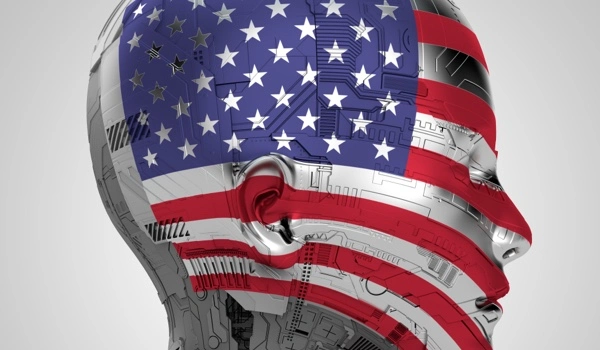Attorney General and gubernatorial candidate Bob Ferguson has announced his appointments to a newly created Artificial Intelligence (AI) Task Force in the Attorney General’s Office. The task force will convene technology experts, industry representatives, labor organizations, civil liberty groups and other stakeholders to discuss AI benefits and challenges. The mission is to identify issues and guiding principles, and submit reports with policy recommendations.
“The impact of Artificial Intelligence in our economy and daily lives is an urgent issue of our time,” Ferguson said. “Washington will lead on innovative and ethical AI, as we have in so many areas. I appreciate the task force members for committing their time and expertise, exemplifying why Washington is a technology leader in this country.”
Ferguson partnered with Sen. Joe Nguyen, D-White Center, to create the task force with Senate Bill 5838. Rep. Travis Couture, R-Allyn, sponsored the companion bill in the House. The bill passed the Legislature with bipartisan support.
AI technology is rapidly developing. In particular, generative AI — AI that creates content such as text, images or audio — has exploded in popularity. Tools like ChatGPT have become some of the fastest-growing consumer internet applications of all time.
According to a recent survey, 79% of respondents in North America reported at least some exposure to generative AI. Forty-one percent report using it regularly, and 22% say they are using it regularly at work. According to a study reported in Forbes, half of Americans who interact with AI don’t realize it.
Ferguson’s task force includes experts from a variety of fields. The task force members are:
- Sen. Joe Nguyen, D-White Center
- Sen. Matt Boehnke, R-Kennewick
- Rep. Clyde Shavers, D-Clinton
- A member of the House Republican Caucus to be determined
- Sheri Sawyer — Deputy Director of Policy & Outreach, Governor’s Office
- Rick Talbert — Senior Project Advisor, Auditor’s Office
- Katy Ruckle — State Chief Privacy Officer, Washington Technology Solutions
- Dr. Magdalena Balazinska — Director, Paul G. Allen School of Computer Science and Engineering, University of Washington
- Kelly Fukai — Vice President of Government and Community Affairs, Washington Technology Industry Association
- Ryan Harkins — Senior Director of Public Policy, Microsoft
- Dr. Tee Sannon — Technology Policy Program Director, ACLU-Washington
- Vicky Tamaru — buildJUSTLY
- Paula Sardinas — WA Build Back Black Alliance
- Leah Koshiyama — Senior Director of Responsible AI & Tech, Salesforce
- Crystal Leatherman — Washington Retail Association
- Montana Miranda — Senior Manager of Government Affairs, Washington Hospitality Association
- Cherika Carter — Secretary Treasurer, Washington State Labor Council, AFL-CIO
- Chief Darrell Lowe — Redmond Police Department
Task force’s work
The task force will include at least the following subcommittees:
- Education and workforce development;
- Public safety and ethics;
- Health care and accessibility;
- Labor;
- Government and public sector efficiency;
- State security and cybersecurity;
- Consumer protection and privacy; and
- Industry and innovation.
The task force may create additional subcommittees as needed. The Attorney General’s Office will also establish a Tribal advisory group and, separately, a Business advisory group to provide regular updates to the task force on issues specific to developing, deploying and using AI in businesses large and small across the state.
The Attorney General’s task force will consider a variety of mandated topics, including:
- Intellectual property and personhood protections, including replicas of voice or likeness;
- High-risk uses of AI that could negatively affect safety or fundamental rights, and appropriate human oversight and accountability;
- Systemic racial disparity issues perpetuated in AI systems;
- Protecting workers across industries from harm and bias by AI systems;
- Opportunities to support innovation; and
- Improving transparency and public education about AI, data privacy and security.
Over the next two years, the task force will issue findings and submit a report with policy recommendations.
The first meeting will be this summer. The task force will meet at least twice a year. The task force’s final report and recommendations are due to the governor and Legislature July 1, 2026.
At least 25 states have introduced legislation related to AI. Legislatures in states including Colorado, Illinois, Texas, Vermont and Virginia have created task forces or commissions to study AI. Several governors have also created AI task forces by executive order.
In February, the U.S. Justice Department on Thursday named its first official focused on artificial intelligence as the department grapples with the potentially transformative affects of AI on federal law enforcement and the criminal justice system. Jonathan Mayer, a professor at Princeton University who researches technology and law, will serve as chief science and technology adviser and chief AI officer. [24×7]



















